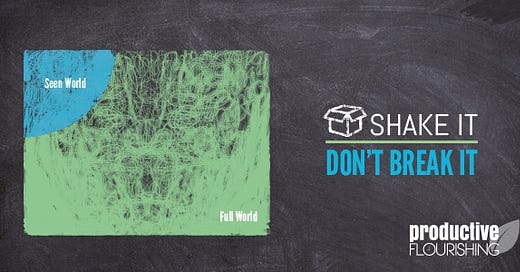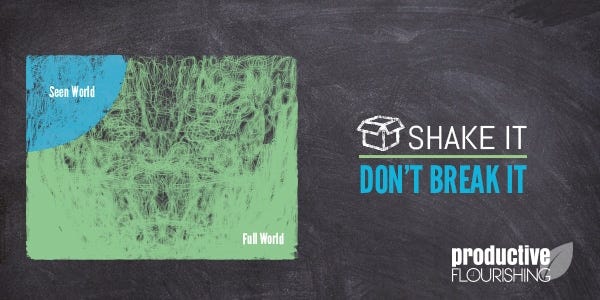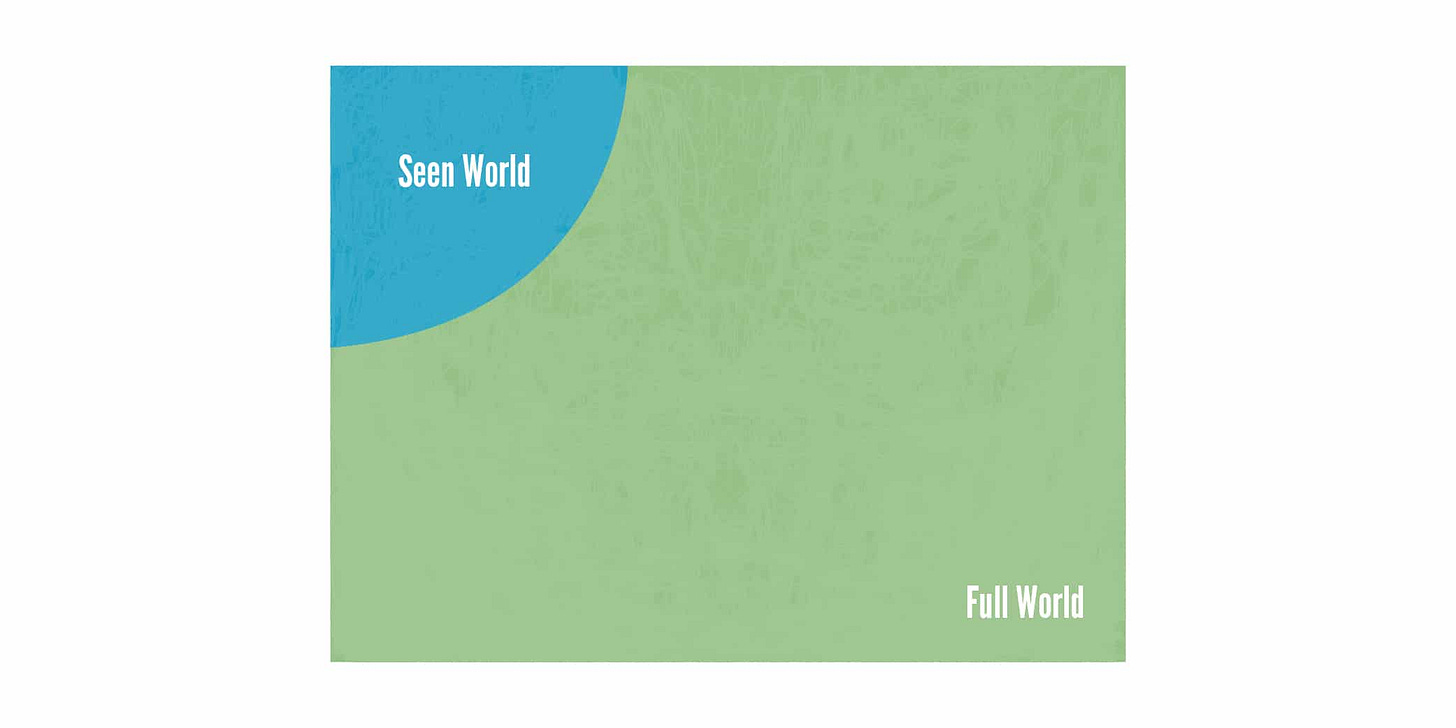Shake It, Don't Break It
Editor’s note: I recorded this as a podcast for Productive Flourishing long after I originally published this post. I hope you enjoy it, and if you’d like to hear more episodes of the podcast, you’ll find them in the show’s archives.
We think too small, like the frog at the bottom of the well. He thinks the sky is only as big as the top of the well. If he surfaced, he would have an entirely different view. —Mao Tse Tung
Step Out of Your Comfort Zone
The world we see is so much smaller than the full world. The picture below is not to scale because if it were, we likely wouldn't be able to see the speck on the board that would be the seen world, but you get the point.
Knowing this and being able to apply it in your life are two separate things, though, because when it comes time to make really important decisions, we default to what we know — which means we decide that the world works the way we've seen it work. Which means we take jobs that look like other jobs we've seen. We choose and reinforce relationship patterns that look like what we've seen. We create work that looks like the work we've seen other people create. We pursue the opportunities that look like the other opportunities we've seen.
Most of what is going to change our lives lies right outside of the world we've seen and known, but we have to step outside of that world to be able to see that the world we've been seeing is only a small portion of the full world that can be seen.
Taking the step outside of the world we see is an act of faith or trust that's hard enough for any of us, but it's harder when those around you have a smaller view of the world than you do, because you have to convince someone who hasn't seen what you hope to find on the other side that there's something worth stepping into the unknown for. You'll inevitably have to leave some people on the safe shores of certainty (the comfort zone), but when the people you love most are irrevocably a part of a journey, you have to take a different approach. If you move too quickly without them, you'll end up breaking the trust, security, and relationships that you have with those people.
If you don't shake things up at all, you're all stuck in the same seen world, unable to create the only-fits-you life you most want to live. There's an art to shaking your world up without breaking it up, but the key point to remember is that they're not the same thing.
Those who are scared to take the journey with you will naturally think that shaking is breaking, and your insistence on making something happen now will naturally lead you to break rather than shake. As I discussed in The Two Dynamics of Change, sometimes you need to tip (break), and other times you need to step (shake), but being able to communicate why a particular kind of change is needed goes a long way with the people you want and need to keep on the journey with you.
In Start Finishing, I talk about 2 questions you can ask to get you going:
What’s the smartest next step on this project?
What’s the most courageous next step on this project?
How might you step out of your comfort zone and step into the full world without breaking your current world?






